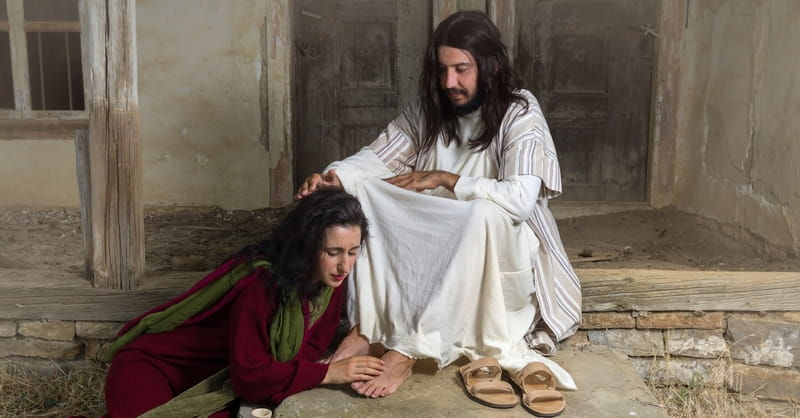US election 2016: All you need to know.
- 21 oct 2016
- 7 Min. de lectura

In January 2017, the most powerful nation on earth will have a new leader, after a drawn out and expensive campaign - but how does a US presidential election work? When the US picks its president, it is not only choosing a head of state but a head of government and a commander-in-chief of the largest military on the planet. It's a big responsibility. So how does the process work? Who can be president? Technically, to run for president, you only need to be "a natural born" US citizen, at least 35 years old, and have been a resident for 14 years. Sounds easy, right? In reality, however, nearly every president since 1933 has been a governor, senator, or five-star military general. And that's before you even consider getting a party nomination and securing national media attention. In this 2016 election, at one stage there were 10 governors or former governors and 10 who are or were senators, although many have since dropped out. One person is nominated to represent the Republican and Democratic parties in the presidential election. How to become the president of the US A series of elections are held in every state and overseas territory, starting in February, which determine who becomes each party's official presidential candidate. The winner of each collects a number of "delegates" - party members with the power to vote for that candidate at the party conventions held in July, where candidates are formally confirmed. The more state contests a candidate wins, the more delegates will be pledged to support them at the convention. Democrat Hillary Clinton and Republican Donald Trump were the clear winners in 2016 and were officially nominated at their party's conventions in July. They also officially unveiled their vice-president picks - Senator Tim Kaine of Virginia for Mrs Clinton, and Indiana Governor Mike Pence for the Republicans. Donald Trump - Living the American Dream Who is the real Hillary Clinton? The big talking points of the campaign There has been a slew of controversies generated by Donald Trump, from the moment the New York businessman launched his campaign with the description of Mexican immigrants as "rapists and criminals". His candidacy has rarely gone a few weeks without sparking some uproar. He's waged wars of words with a judge, a Miss Universe, a Fox News anchor and the Muslim family of a fallen soldier. He's had to defend his refusal not to release his tax returns and the suggestion he has paid no federal income tax for 18 years, plus field questions surrounding his charitable foundation. The latest bombshell came on 7 October with the publication of a video from 2005. Mr Trump is heard referring to women in sexually offensive terms when he was caught on a live microphone during the filming of a soap. The furore forced him to issue an apology and try to convince voters that the words in the video "do not reflect who I am". But it wasn't enough to stop dozens of Republicans from deserting him, sparking civil war within the party. Now more half a dozen women have accused him of sexual assault, and he has hit back forcefully, accusing them of being liars and not attractive enough to warrant his attention. And Hillary Clinton has had her share of anxious moments too. The damage wrought by her private email arrangement to her reputation is thought to be significant, and questions have been raised about the foreign donations to the Clinton Foundation. Mr Trump has also put the spotlight on the part she played in pushing back at the women who claimed to have affairs with her husband Bill. And WikiLeaks has been revealing hacked emails that have laid bare some embarrassing conversations between members of her campaign team. US presidential race goes down the drain Which Republicans have deserted Trump? What we learnt from Clinton emails Hillary's campaign and Bill's women Who won the third debate? Early on, the candidates focused on policy but the debate ignited when Mrs Clinton turned a question about Wikileaks into an attack on Trump's relationship with Russia. At that point, Trump's interruptions returned. He called Mrs Clinton a liar and claimed she was the Russian puppet, not him. When the topic turned to fitness to be president, the stage was set for a total meltdown. Mr Trump said the women who had accused him of sexual harassment were in it for the fame and were Clinton campaign stooges. Perhaps most remarkable moment however was when moderator Chris Wallace asked Mr Trump whether he would support the election results, no matter who won. Mr Trump refused to do so, going against a longstanding American tradition that the winner is recognised and congratulated by their rival. Instead, Mr Trump accused the media of poisoning people's minds and said Mrs Clinton should not have been allowed to run for president. At that point, the headlines were written and the debate results were locked in, said the BBC's North America reporter Anthony Zurcher. It was not a good night for the Republican. Who won the debate? Reality check - third debate What about the second? Described as one of the nastiest presidential debates, repeated attempts at character assassination dominated. Mrs Clinton homed in on the 2005 video of Mr Trump's lewd comments about women. It showed, she said, "exactly who he is". Mr Trump focused on allegations surrounding Bill Clinton's sexual impropriety and her work as a lawyer defending a rapist. The scandal over Mrs Clinton's use of a private email account for official business when she was secretary of state should land her in jail, the Republican candidate said. It wasn't the knock-out blow Hillary Clinton's supporters probably hoped for, says our North America reporter Anthony Zurcher, and she will probably be content with a draw. Who won the debate? Reality check - second debate And the first? The first debate in New York in September saw the two candidates sharing a stage for the first time, and as a spectacle it did not disappoint. Trump and Clinton locked horns for 97 minutes, with the Democrat seeming to get under Trump's skin at times, by accusing him of ripping off contractors, dodging his federal taxes, being a misogynist and promoting "the racist, birther lie". New Yorker Trump landed some blows on Clinton on trade deals, her emails and the Middle East, framing her as a political insider who had achieved nothing after three decades of public life. But after a shaky start, she controlled the evening and he failed to stay disciplined about his message. The fact-checkers were busy, and the BBC has done its own homework on some of the key claims. They weren't the only ones who had their work cut out - the Twitter mischief-makers also made hay, in 140-characters or less. Reality Check: Who told the most fibs? Five Twitter takeaways Who won the debate? And the VP debate? That was won by Mike Pence Donald Trump's woeful first presidential debate performance was compounded by a series of unforced errors, capped by an early morning Twitter tirade and a damaging New York Times story about his near billion-dollar business losses in 1995. His poll numbers headed south. The Republican vice-presidential nominee's primary job - really his only job - was to stop the bleeding and give the campaign an opportunity to regroup. Mr Kaine's goal was to keep him from doing that. Mr Pence succeeded. Mr Kaine, while unloading a crate of opposition research on Mr Trump, failed. Anthony Zurcher, BBC News, Washington Read Anthony in full What are the key dates between now and the election? Hold on to your hats for a manic last few weeks, as the two candidates whizz across the country to make their case in key states. There is one more televised debate to come: Wednesday 19 October in Las Vegas, Nevada Then - finally - votes are cast on Tuesday, 8 November.2016 The candidate with the most votes in each state becomes the candidate which that state supports for president. It's all down to a system called the electoral college, a group of people who choose the winner - 538 of them, in fact. Just half of them - 270 - are needed to make a president. But not all states are equal - California, for example, has more than 10 times the population of Connecticut, so they don't get an equal say. Each state has certain number of these "electors" based on their population in the most recent census (it so happens that it's the same number of districts in a state, plus two senators). When citizens vote for their preferred candidate, they're actually voting for the electors, some of which are pledged to one candidate, some for another. But here's where it gets interesting. In almost every state (except Nebraska and Maine), the winner takes all - so the person who wins the most electors in New York, for example, will get all 29 of New York's electoral votes. In the race to get to the magic number - 270 - it's the swing states that often matter most. The US electoral college explained What are swing states? So, we've got two candidates, both in a race to get to 270 electors by winning whole states at a time. Both parties think they can bank on certain states, big and small. Republicans will count on Texas, and not waste their money campaigning to a great extent there. Similarly, California is likely to sit in the Democrats' column. The others are known as "swing states" - where it could go either way. Florida in particular, with its 29 votes, famously decided the 2000 election in favour of George W. Bush, who lost the popular vote nationally but, after a Supreme Court case, won the electoral college. Other swing states include: Ohio, Virginia, Colorado, North Carolina, Nevada. When does the new president start work? In the days and weeks after the election - if the vote is decisive - the victor will assemble a cabinet and begin crafting a more thorough policy agenda. Meanwhile, the departing "lame duck" president works to shape his legacy and begins packing up his belongings. Under the US constitution, the president is inaugurated on 20 January of the year following the election.

Pablo JG Marin /
The Global News Today


























































































































.jpg)





























































































































Comentarios